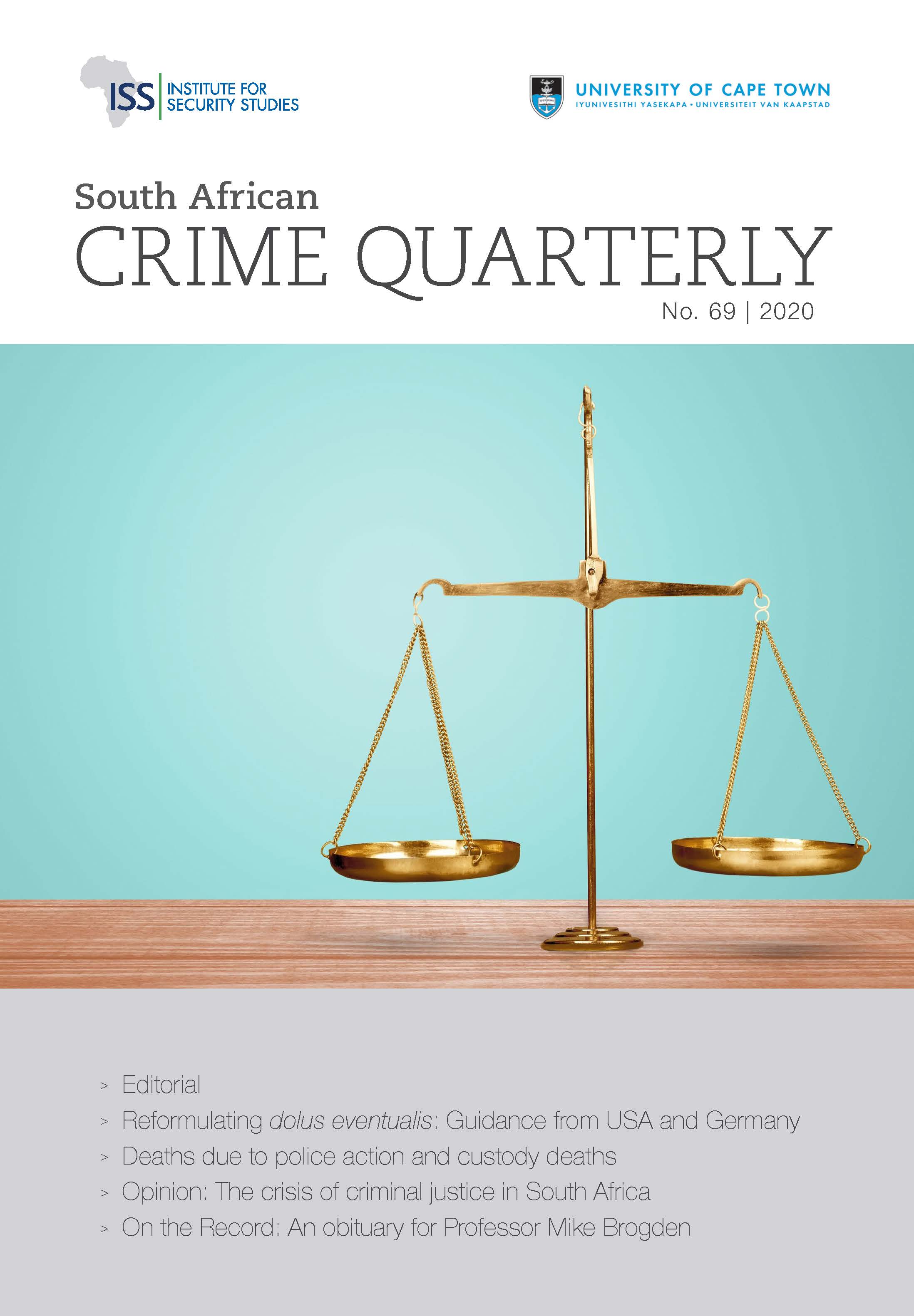Admission of guilt fines: A legal shortcut or delayed shock?
DOI:
https://doi.org/10.17159/2413-3108/2020/i69a7444Abstract
A popular perception shared by peace officers and the public alike is that the payment of an admission of guilt fine finalises the judicial process and no criminal record will result. However, paying an admission of guilt fine in terms of section 56 of the Criminal Procedure Act means that the person is deemed to have been convicted and sentenced in a court of law. People who pay admission of guilt fines later discover with shock that they in fact have a criminal record, with severe consequences. Often costly High Court applications will have to be instituted to set aside the conviction and sentence. Peace officers have a duty to inform a person of the consequences of paying an admission of guilt fine, but often do not do so and even abuse the admission of guilt system to finalise matters speedily. This article examines the consequences for a person who pays an admission of guilt fine. It further investigates whether there is a duty on Legal Aid South Africa to provide legal assistance in these matters and whether an administrative infringement process should be investigated.
Downloads
Downloads
Published
Issue
Section
License
Copyright (c) 2020 Author and Institute for Security Studies/UCT

This work is licensed under a Creative Commons Attribution 4.0 International License.
SACQ is licenced under a creative commons licence (CC BY) that allows others to distribute, remix, tweak, and build upon your work, even commercially, as long a they give appropriate credit, provide a link to the license, and indicate if changes were made. They may do so in any reasonable manner, but not in any way that suggests the licensor endorses you or your use.
Copyright for articles published is vested equally between the author/s, the Institute for Security Studies and the Centre of Criminology (UCT).




.png)